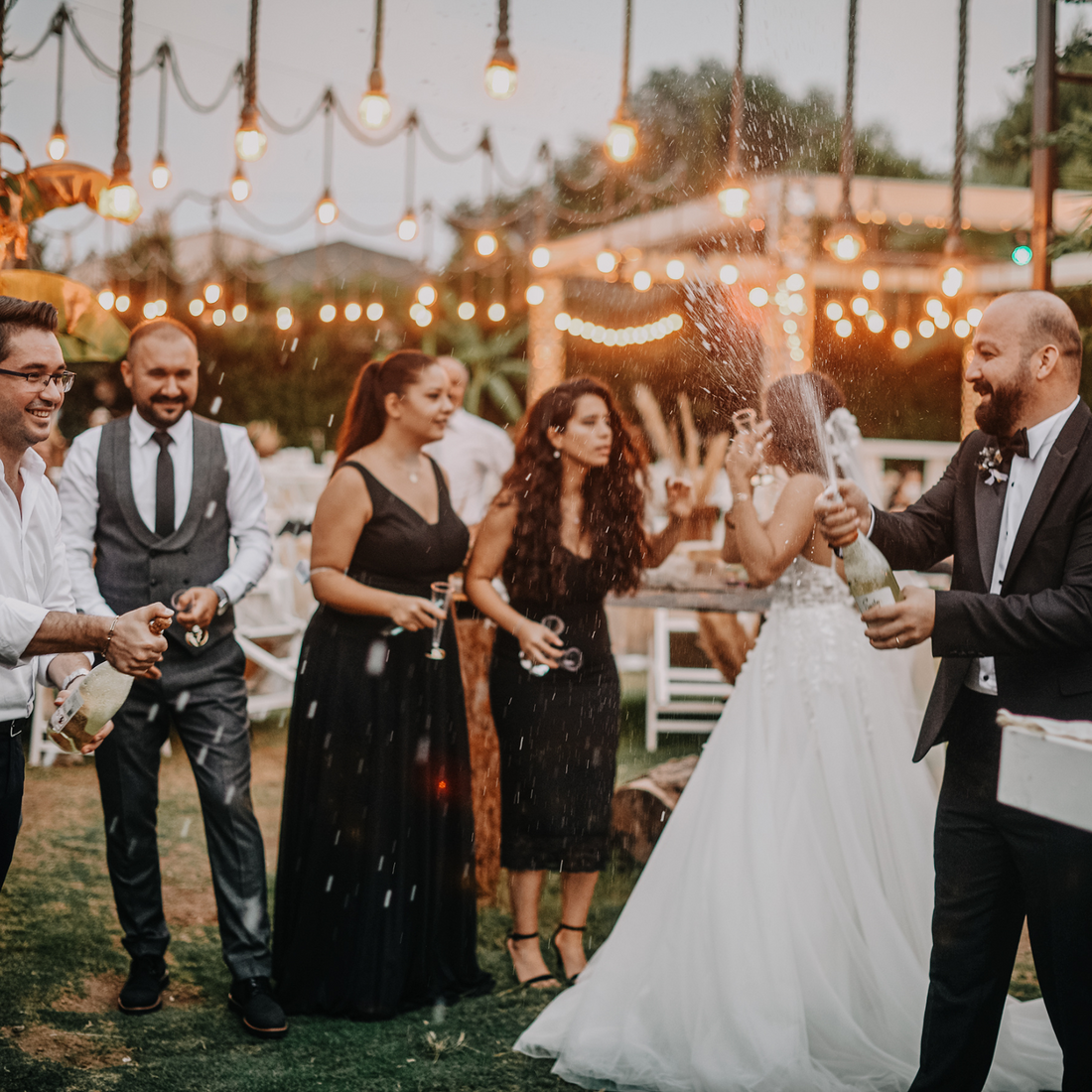
10 Items Most Couples Forget from Their Wedding Budget
Planning a wedding can be exciting, but it often comes with hidden costs that many couples overlook. From pre-wedding preparations to post-wedding expenses, there are numerous items to consider when budgeting for your big day. In this blog post, we'll walk you through ten common wedding costs couples forget to include in their budgets. This will help ensure your wedding planning is stress-free and doesn’t leave you with unexpected financial surprises.

1. Wedding Insurance
While your wedding might be one of the most important days of your life, it's also a significant investment. Wedding insurance can protect you from a variety of unexpected situations, such as supplier cancellations or bad weather. Be sure to read the fine print of any insurance policy to understand what’s covered and ensure you are fully protected.

2. A Contingency Fund
Weddings are notorious for going over budget, sometimes by a significant amount. To avoid stress and frustration, it’s a good idea to include a contingency fund in your budget—typically around 10% of your total wedding costs. This fund can cover unexpected expenses or last-minute additions to your plans.

3. Pre-Wedding Beauty Treatments
While most brides budget for hair and makeup on the big day, don't forget about pre-wedding beauty treatments. From manicures and pedicures to spray tans or facials, these small but necessary expenses can quickly add up. Consider these costs early in your budget to avoid any surprises.

4. Bridesmaid and Groomsmen Gifts
It’s common to want to thank your bridal party for their support, but these gifts often get overlooked when planning the budget. Whether it's a personalised item or a thoughtful experience, make sure you set aside a budget for these special thank-you gestures.

5. Hotel Accommodation
You may have planned for the venue, honeymoon, and wedding night accommodation, but what about your wedding party’s stay? Depending on the size of your bridal party and the location of your wedding, you may need to pay for accommodation or travel costs for your bridesmaids, groomsmen, or other guests. Make sure to consider these extra costs as part of your overall wedding budget.

6. Service Charges, Tips, and GST
In Australia, many suppliers will include GST in their quotes, but not all will include service charges or tips. It’s important to double-check all agreements with venues, caterers, photographers, and other suppliers to ensure there are no hidden charges. Some venues may also charge a service fee for the staff working at your wedding, so don’t forget to include this in your budget.

7. Delivery Fees
Many wedding vendors, such as florists, cake designers, and furniture rental companies, charge delivery fees. These costs can be easy to forget but can add up quickly, particularly if your venue is located far from your suppliers. Be sure to confirm delivery fees with all vendors and include them in your wedding budget.

8. Supplier Meals
Most wedding vendors will require a meal if they’re working for an extended period. Photographers, videographers, and musicians are just a few examples of professionals who may require a meal during your event. Check your contracts to ensure you know how many meals need to be provided and factor these into your budget.

9. Dress Alterations
It’s easy to think that once you’ve bought your wedding dress, that’s the final cost. However, most brides need to budget for alterations as well. Whether it's resizing, hemming, or adding custom touches, dress alterations can be a significant additional cost that many forget about when planning their budget.

10. Post-Wedding Costs
After the wedding, there are still a few things to take care of. Some common post-wedding expenses include dry cleaning the wedding dress, sending thank-you cards, and finalising any lingering supplier payments. Don’t forget to include these costs in your wedding budget to avoid any surprises once the big day is over.
FAQs About Wedding Budget
How do I set a realistic wedding budget?
A realistic wedding budget starts with identifying your priorities. List the most important elements of your wedding, such as the venue, food, and photography, and allocate a portion of your budget to these first. Then, factor in other expenses such as décor, travel, and miscellaneous costs.
What’s the average cost of a wedding in Australia?
The average cost of a wedding in Australia varies, but most couples spend between $30,000 and $50,000. Keep in mind that costs will differ depending on the location, number of guests, and type of wedding you're planning.
How can I reduce wedding costs?
Reducing wedding costs can be done by simplifying your plans. Consider a smaller guest list, DIY décor, or a more affordable venue. Prioritise what’s most important to you and make sure to book suppliers well in advance to avoid inflated last-minute prices.
Should I include tips for my wedding vendors in the budget?
While not mandatory, tipping your vendors is a thoughtful gesture and a common practice in Australia. Be sure to include a portion of your budget for tips, especially for the venue staff, photographer, and catering team.
By keeping these hidden costs in mind, you’ll be able to plan a more accurate wedding budget and avoid any surprises along the way. With careful preparation, you can ensure that your dream wedding goes off without a hitch while staying within your budget.
